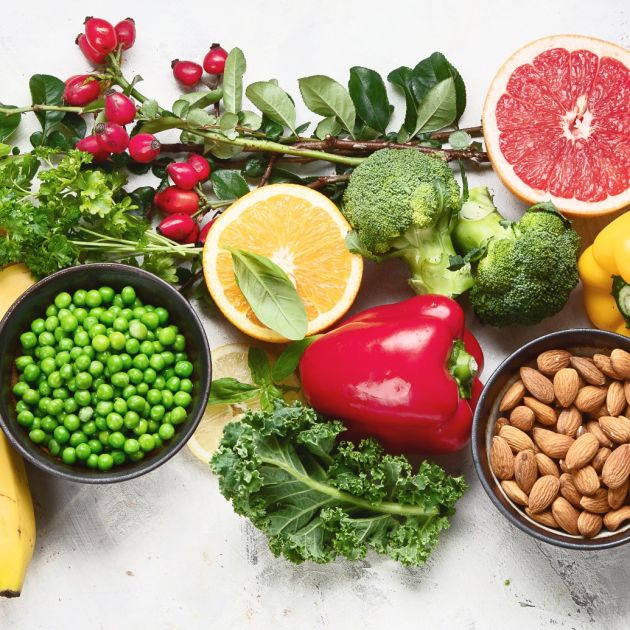Eating to Hear. See. and Do More. How nutritional health can improve your eyes and ears
Mar 25, 2021 in Eye Care

Over the last few years, we have seen a huge rise in demand for plant-based alternatives to meat and dairy. The ‘Impossible Burger’, the plant-based meat alternative, was accepted by many die-hard carnivores and milk substitutes from nut and rice to oat are available in every mainstream coffee bar, normally now offered at the same cost as a traditional dairy-based drinks.
Nutrition trend forecasters are predicting more of the same as we continue to require increased plant-based options and substitutes for animal based products – both for our own health and the health of our planet.
Some trends will stick, others will fade, but the common sense approach to nutrition and eating for health remains constant. Dietitian and Sports Dietitian, Erika Svensen has given us some tips on setting goals and what should be on our plates to ensure we hear, see and can do even more in 2020 and beyond.
In terms of goal setting, we are all guilty of starting off with big goals, especially at this time of year.
Setting goals that are realistic and sustainable will keep you more motivated. By focusing on small incremental changes, it reduces our reliance on willpower and gives us a better chance of making long-term healthy changes. Small, specific, measurable and achievable goals such as having one extra serving of vegetables every day for the next month or finding a new healthier recipe to learn to cook once a week is a great place to start.

As we age, our ability to absorb some nutrients such as calcium or Vitamin D is reduced and we need both for bone health. Eating foods containing Vitamin D such as oily fish and fortified breakfast cereals can help and it’s recommended that people over the age of 65 take a Vitamin D supplement of 100μg per day. In the UK, particularly in winter, it can be advisable for most adults to take a Vitamin D supplement of some kind.
B-vitamins are also essential to include in your daily diet. Folate is found in green vegetables and fortified foods; B6 is found in meat, dairy, cereals and vegetables, and B12 is found in meat, fish, eggs, dairy, fortified breakfast cereals and some soya products.
Erika suggested that "There is some evidence to suggest that Omega 3 fatty acids can reduce the risk of dry eye syndrome (DES). " Omega 3 fatty acids can be found in oily fish (salmon, trout, mackerel, herring, sardines, pilchards, kippers, whitebait and anchovies), fortified foods including some eggs, bread, milk and yoghurts as well as nuts (particularly walnuts), seeds, soya and green leafy vegetables can reduce the risk of dry eye syndrome (DES). One serving (140g) of cooked oily fish per week will provide the required amount of Omega 3s to reduce the risk of DES.
Carotenoids are a group of antioxidants found in vegetables that help reduce inflammation and oxidative stress and there is evidence that they can also reduce the risk of age-related Macular Degeneration. Foods containing these include orange and yellow fruits and vegetables, green leafy vegetables, tomatoes, watermelon, guava, spinach, kale, broccoli, lettuce, peas, red pepper, corn and egg yolk.
"Eating a balanced diet that includes plenty (at least 5 servings) of fruit and vegetables of different variety and colours (‘Eat the Rainbow’), two servings of fish per week as well as high fibre whole grains, will improve people’s overall health."
A great diet is about balance, colour and variety. Paying attention to your nutrition will improve your overall health and help them live life to the full.
To see a dietitian, visit your GP for a referral or visit FreelanceDietitians for a private dietitian.
Book an appointment
Regular sight and hearing tests are recommended to ensure you are living life to the full. Book now and learn what you can do to optimise your vision and hearing health.
So make sure you book an appointment today. You can do this online, by calling 0800 40 20 20 or in your local branch.
Contributor

Contributor: Erika Svensen APD Dietitian and Sports Dietitian HCPC registered

